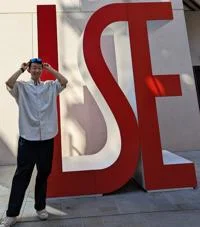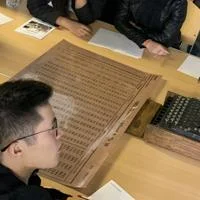MSc Alumni Profiles

Browse the profiles below to see what our Alumni thought of their time in the department and what they have been up to since completing their degree.
The Department offers a unique setting to learn about methods and how to apply them to real-world research. The skills you'll learn are useful for academia, the charity sector, and the industry!

Hiroki Oda - MSc Applied Social Data Science - 2023-24
I really enjoyed the programme as it was intellectually stimulating especially for the part of applying data science techniques into social science problems. I have mainly learned computational skills like programming and managing large-scale data, and analytical methods including machine learning, causal inference and social network analysis.
I am now working as a research assistant while applying for some PhD programmes. My knowledge in social data science from MSc courses is directly related to my research work as it requires both technical skills and knowledge in applying these technical skills in social science research questions.
I definitely recommend the programme to my friends or people from my previous university who have social science background and aspire to learn data science.
Contact Hiroki via email.

Louis Magowan - MSc Applied Social Data Science 2021-22
The Applied Social Data Science programme was hard work, but extremely rewarding! I took courses in areas such as computer programming, machine learning, deep learning and regression analysis. The material was stimulating and felt very up-to-date. While the specific, technical skills I was able to learn have since proved incredibly useful - what I am most grateful to have gained from the course was a better ability to self-teach, as well as the confidence to do so. Anyone embarking on a career in data, be it academic or commercial, is committing to a life of learning. The idea of teaching myself complicated, new ML techniques, or reading and understanding AI/NeurIPS journals would not have been something that I could have previously countenanced. However, thanks to the ASDS programme - I believe I can! The other aspect I enjoyed most about the programme was my cohort! I got to study alongside some of the brightest, most engaged, and talented people I’d ever met, creating a learning environment that was invigorating.
I came into the programme with specific, professional objectives. I’d worked in data before but felt I was lacking the necessary quantitative skills and technical foundation to be able to progress into a role as a Data Scientist. I’m happy to say that since graduating, I’ve managed to land a role as a Data Scientist at Qonto - one of Europe’s biggest and most exciting fintechs (who are hiring for all sorts of data/tech roles FYI). Without a doubt, I would not have been able to get that role had I not had the ASDS MSc on my CV.
Carefully evaluate the professional/academic objectives you have for taking the course. Review the course options for the programme (and consider that you can also audit courses beyond what you are required to). If your objectives align with what you’ll learn, go for it!
Contact Louis via email.

Wenqing Huangfu - MSc in Social Research Methods 2021-22
The SRM program at the LSE Department of Methodology is fantastic. Cohorts and professors here are highly diversified, with different backgrounds and research interests. I learned a lot about cutting-edge and advanced quantitative and qualitative methods, like text analysis, machine learning, and focus groups.
I am currently a Ph.D. student in the Department of Government and Politics at the University of Maryland. The program at LSE helps me a lot and equips me with substantial research skills used in my current study. It is a great bridge for me to get into a Ph.D. program.
If you are considering studying at the LSE Department of Methodology, just go! Feel free to reach out to me via email.
Contact Wenqing via email.

Arne Holverscheid - MSc in Social Research Methods 2019-20
I had a great time at the LSE. The Department has a remarkably friendly atmosphere and everyone is open and approachable, including senior faculty. The courses and program are flexible but rigorous, which was perfect for me coming from a more theoretical and less empirical background.
I am about to start my PhD in Political Science at Northwestern University (fall 2021). I think both the coursework as well as the endless support and advice I received from professors during my MSc were invaluable in preparing me.
Please feel free to reach out, especially if you are interested in political science and thinking about studying at the Department of Methodology.
Contact Arne via email.

Wenbo Song - MSc in Applied Social Data Science 2019-20
All members of staff in the department are so approachable is the most important thing that perhaps cannot be normally experienced elsewhere! I was especially enjoying the departmental events, both academically and socially, and the one-on-one time getting advice from the departmental professors during their regular weekly office hours! And of course, our cohort is the single best one to study and grow up together with! Thinking logically from the perspective of applied data science and being fluent in computer programming, particularly R, help me make the most of my talents to explore and address a range of fundamental social science questions
I am currently a Joint PhD student in Global Health at the London School of Hygiene & Tropical Medicine and the Nagasaki University. My research focuses on epidemiological investigation on multimorbidity, mainly cluster analysis in assessing multimorbidity patterns, and non-communicable disease prevention and health promotion using digital technology in Asia-Pacific countries. I have used what I learned from the ASDS programme since day one of my current study.
The MSc ASDS gives students the great opportunities to be at the cutting edge of some unbelievably transformative data science methodologies in 21st-century social science research. When you get the offer, just say yes!
Contact Wenbo via email.